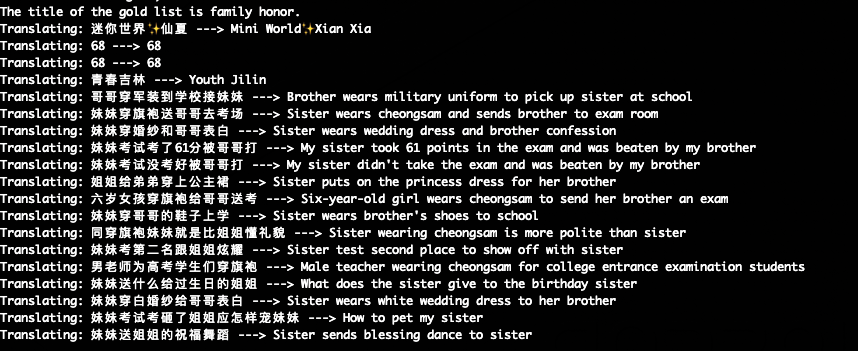MEDUSA is an extensible and modularized framework that automates processes and techniques practiced during the dynamic analysis of Android Applications.
- Clone this repo
- Navigate to the medusa's directory
- Run the following command:
$ pip install -r requirements.txt --upgrade
You can find the docker file in the medusa/ directory.
- Build with
$ docker build -t medusa:tag1 ./
- Run with
$ docker run --name medusa --net=host --rm -it medusa:tag1
- Run adbd in tcp/ip mode in your physical device or emulator
$ adb tcpip 5555
- Connect to from the image to your device using:
root@docker# adb connect device_ip:5555
System requirements:
- Linux or macOS (currently medusa doesn't support windows)
- Python 3 (Use the latest python release and not the one shiped with MacOS to avoid issues with using libedit instead of GNU's readline)
- Rooted device or emulator
- adb
- FRIDA server (running on the mobile device)
Check our wiki page for usage details.
Demos:
- MEDUSA | Android Penetration tool (credits @ByteTheories)
- MEDUSA | Android Malware Analysis 101 (credits @ByteTheories)
- Unpacking Android malware with Medusa (credits @cryptax)
- Unpacking Android APKs with Medusa (credits @LaurieWired)
- #Medusa - Extensible binary instrumentation framework based on #FRIDA for Android applications (credits @AndroidAppSec)
- Memory inspection with Medusa
- Bypassing root detection
Medusa consists of two main scripts: medusa.py and mango.py:
The main idea behind MEDUSA is to be able to add or remove hooks for Java or Native methods in a large scale while keeping the process simple and effective. MEDUSA has more than 90 modules which can be combined, each one of them dedicated to a set of tasks. Indicatively, some of these tasks include:
- SSL pinning bypass
- UI restriction bypass (e.g. Flag secure, button enable)
- Class enumeration
- Monitoring of:
- Encryption process (keys, IVs, data to be encrypted)
- Intents
- Http communications
- Websockets
- Webview events
- File operations
- Database interactions
- Bluetooth operations
- Clipboard
- Monitoring of API calls used by malware applications, such as:
- Spyware
- Click Fraud
- Toll Fraud
- Sms Fraud
Furthermore you can intercept Java or Native methods that belong to 3rd party apps or create complex frida modules with just few simple commands.
Mango is medusa's twin brother which can be used to:
- Parse and analyse the Android manifest
- Enumerate an application's attack entry points (exported activities, deeplinks, services etc.)
- Keep track of all your analysed applications
- Automate boring processes like:
- Set up a MITM
- Patching
- Wrap adb commands
- Set/View/Reset the device's proxy configuration
...and many many more
- Replace the default google_trans_new.py of you google_trans_new python package with the one from the utils/google_trans_new.py
- Import it with medusa>use helpers/tranlsator
- Making a pull request
- Creating a medusa module (see how to)
- Reporting an error/issue
- Suggesting an improvement
- Making this project more popular by sharing it or giving a star
- Buying a treat:
Bitcoin (BTC) Address: bc1qhun6a7chkav6mn8fqz3924mr8m3v0wq4r7jchz
Ethereum (ETH) Address: 0x0951D1DD2C9F57a9401BfE7D972D0D5A65e71dA4
Hooks api calls which found to be common for this kind of malware, including:
- Contact exfiltration
- Call log exfiltration
- Camera usage
- Microphone usage
- Location tracking
- File uploading
- Media recording
- Clipboard tracking
- Device recon
- Screenshot capture
Translates the application's UI by hooking 'setText' calls
CREDITS:
- Special Credits to @rscloura for his contributions
- Logo Credits: https://www.linkedin.com/in/rafael-c-ferreira
- https://github.com/frida/frida
- https://github.com/dpnishant/appmon
- https://github.com/brompwnie/uitkyk
- https://github.com/hluwa/FRIDA-DEXDump.git
- https://github.com/shivsahni/APKEnum
- https://github.com/0xdea/frida-scripts
- https://github.com/Areizen/JNI-Frida-Hook









